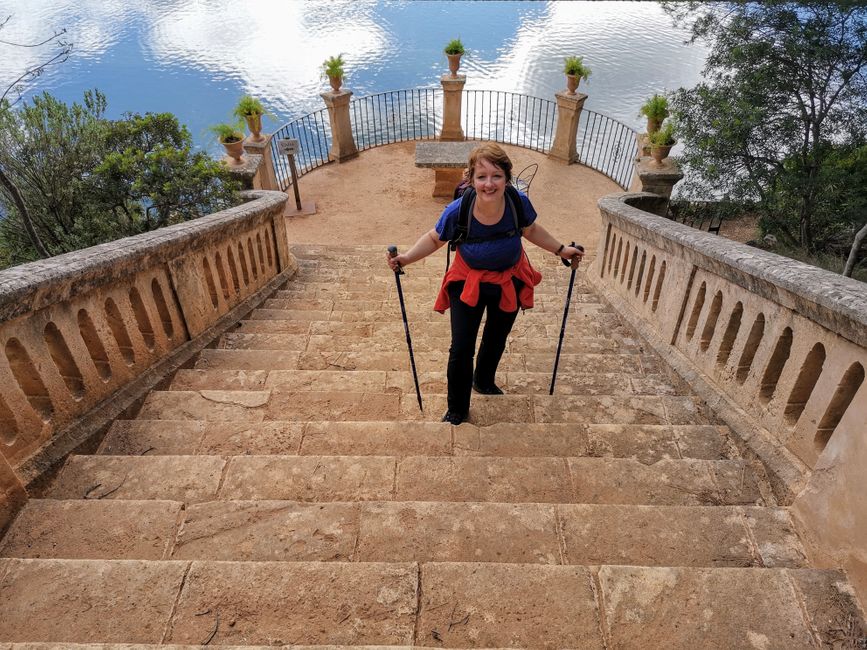Day 25 & 26, May 14th and 15th, 2021: Kampala City & Relaxing in Villa Kololo
פֿאַרעפֿנטלעכט: 15.05.2021
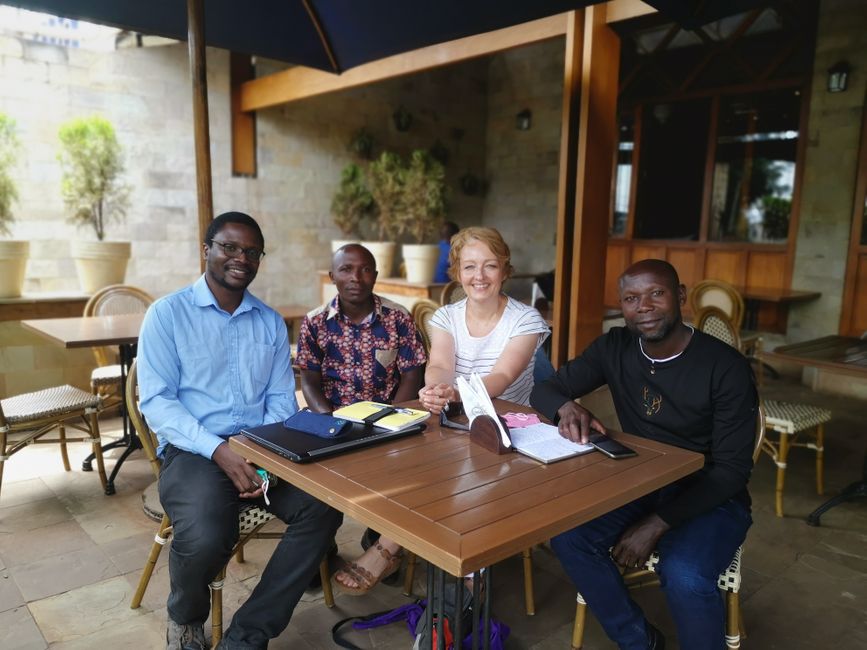
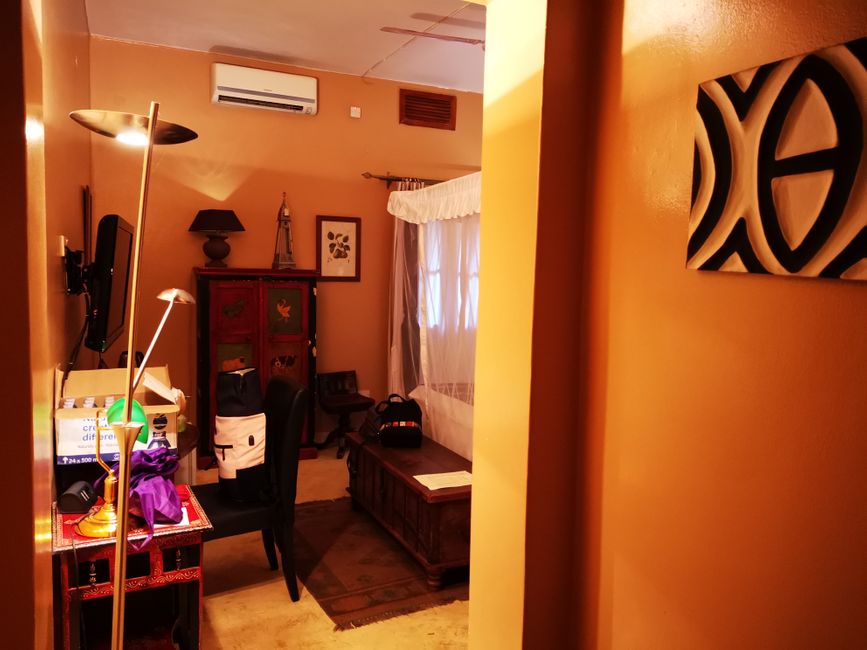
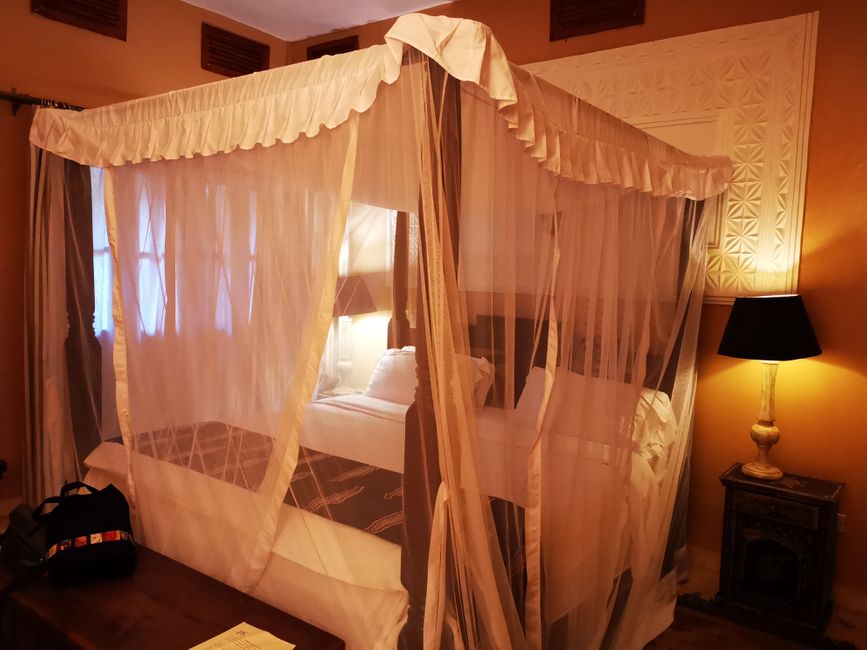
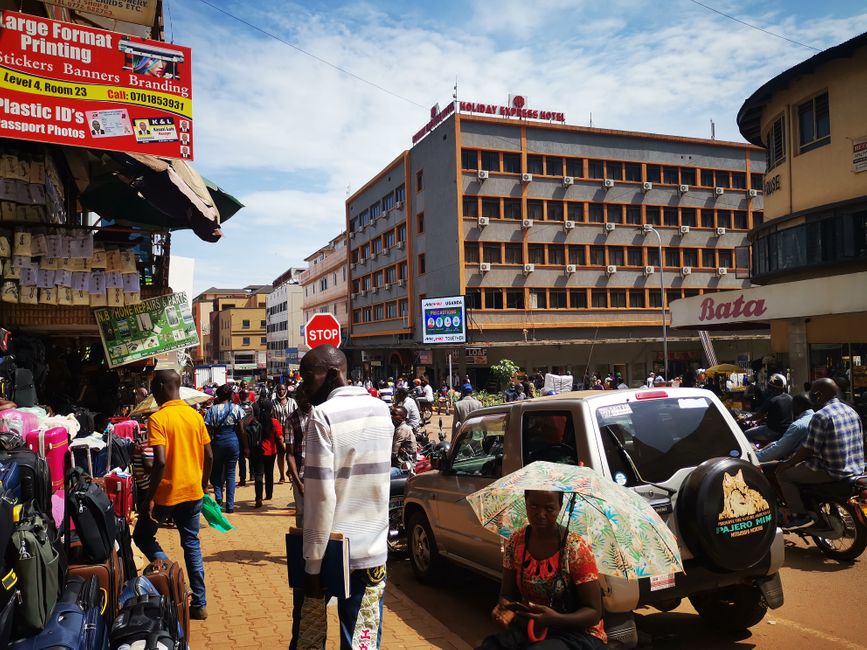
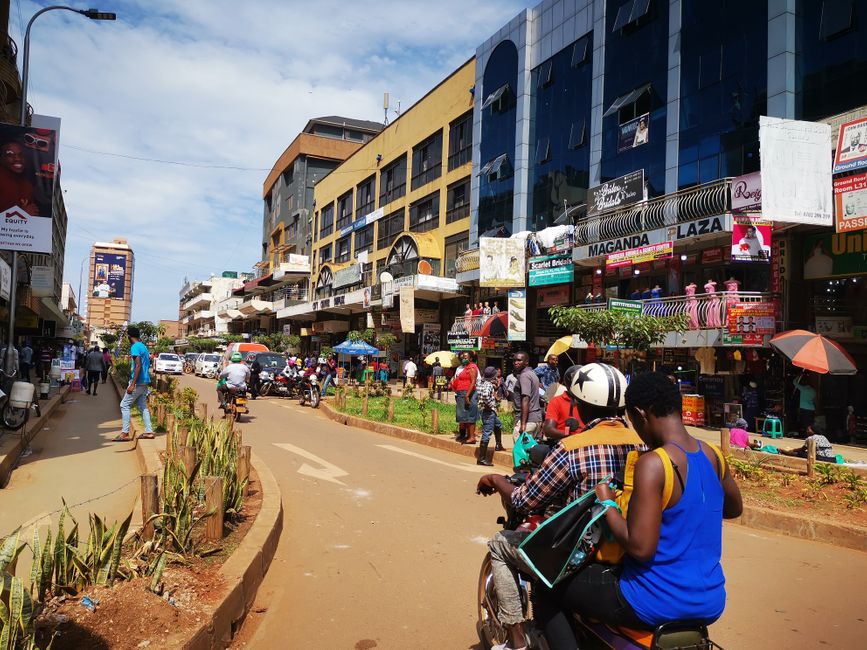
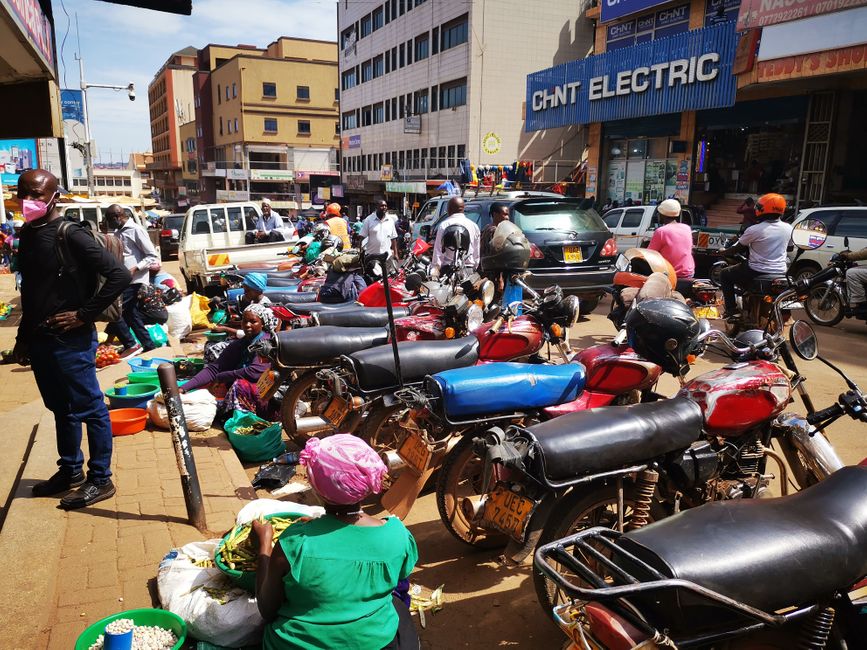
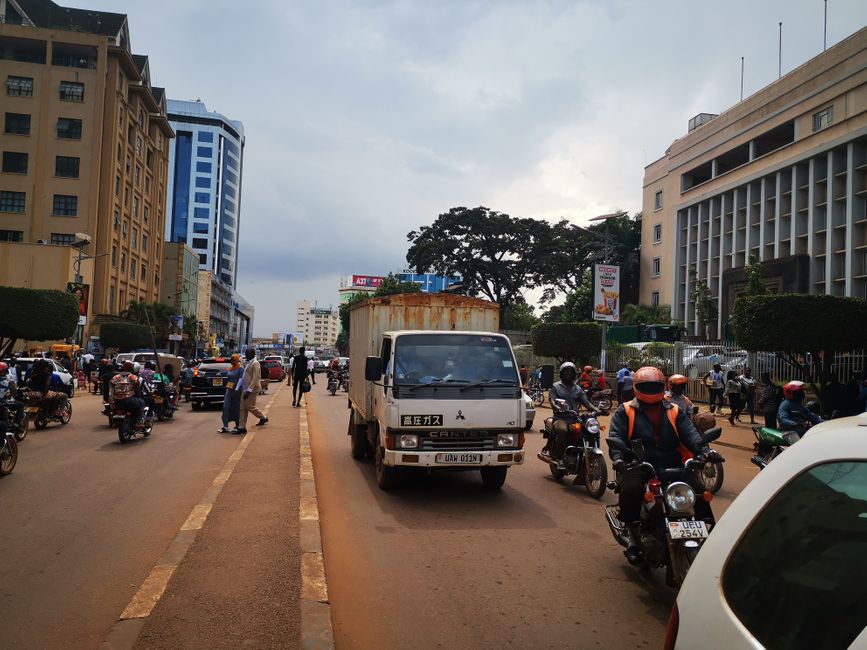
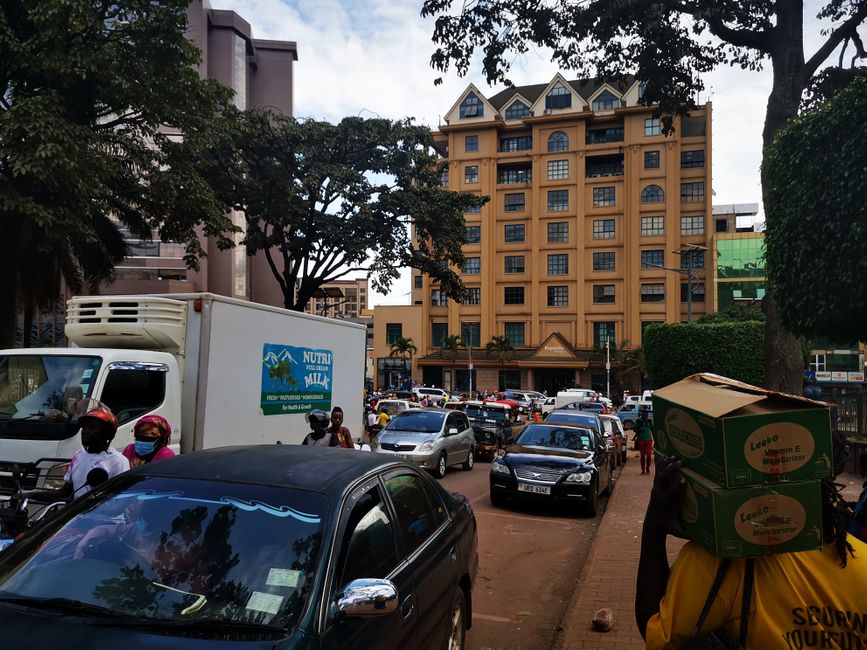
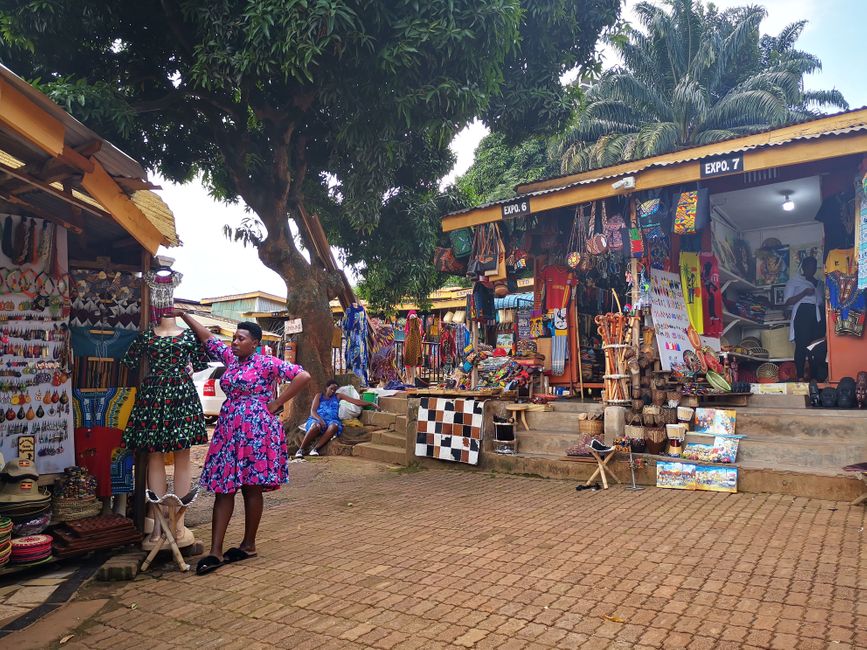
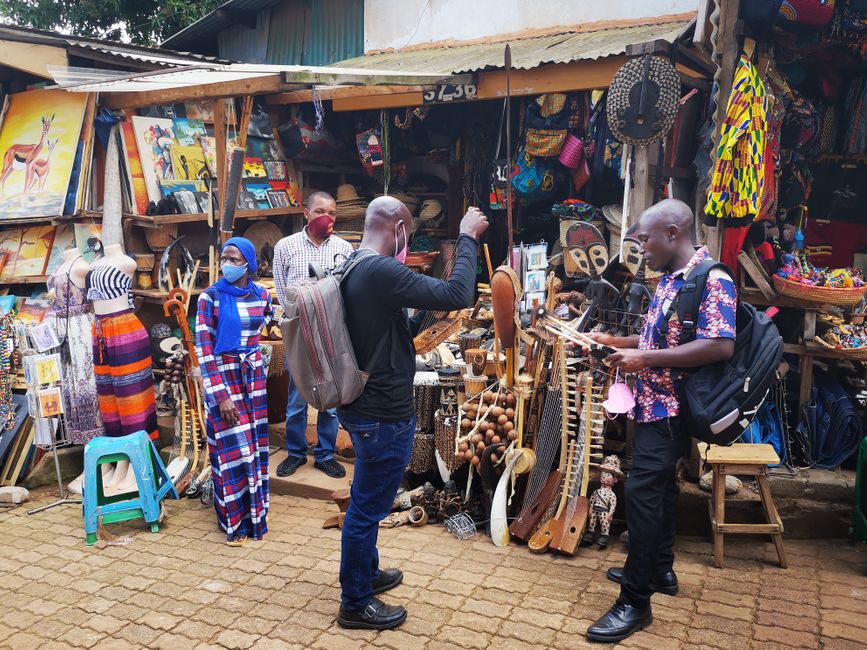
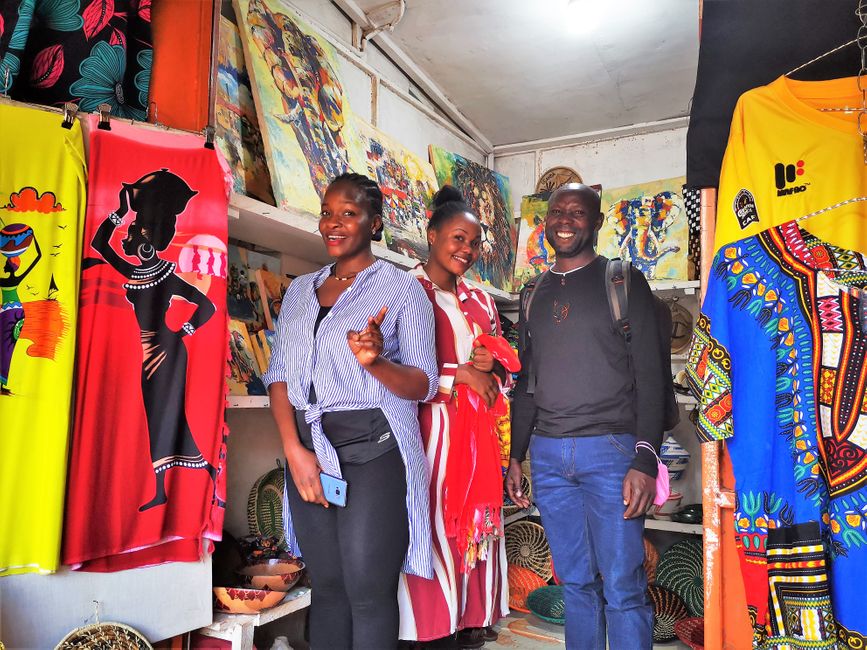
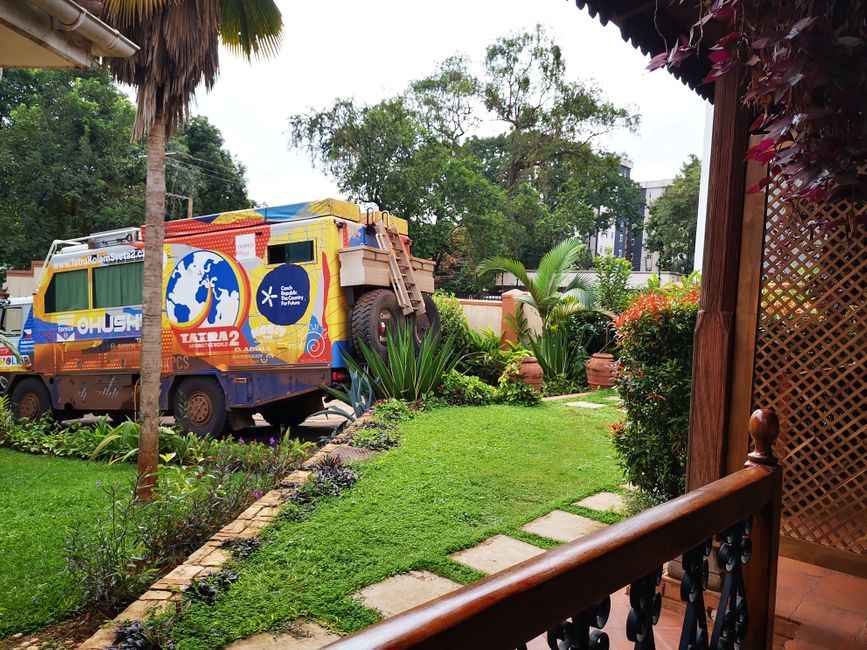
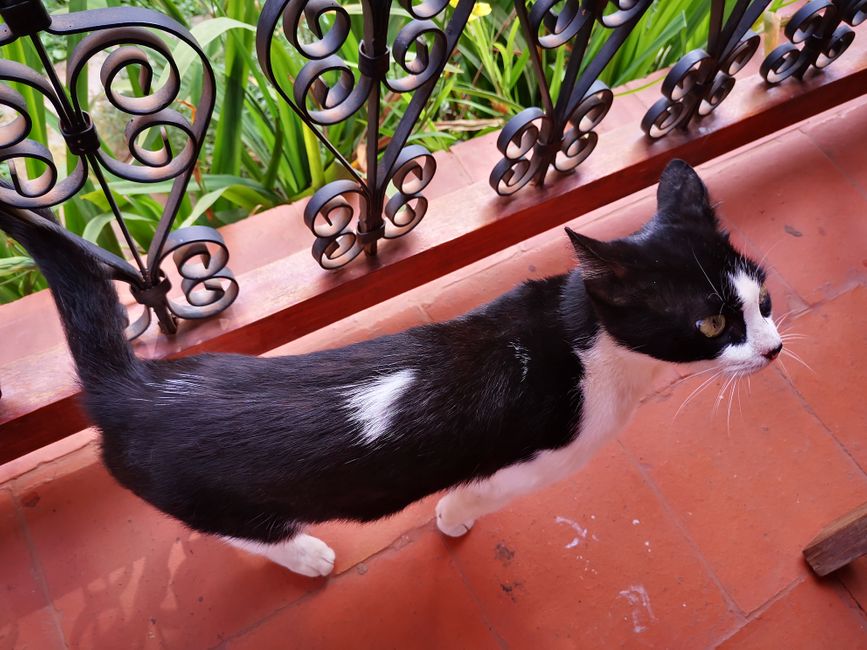
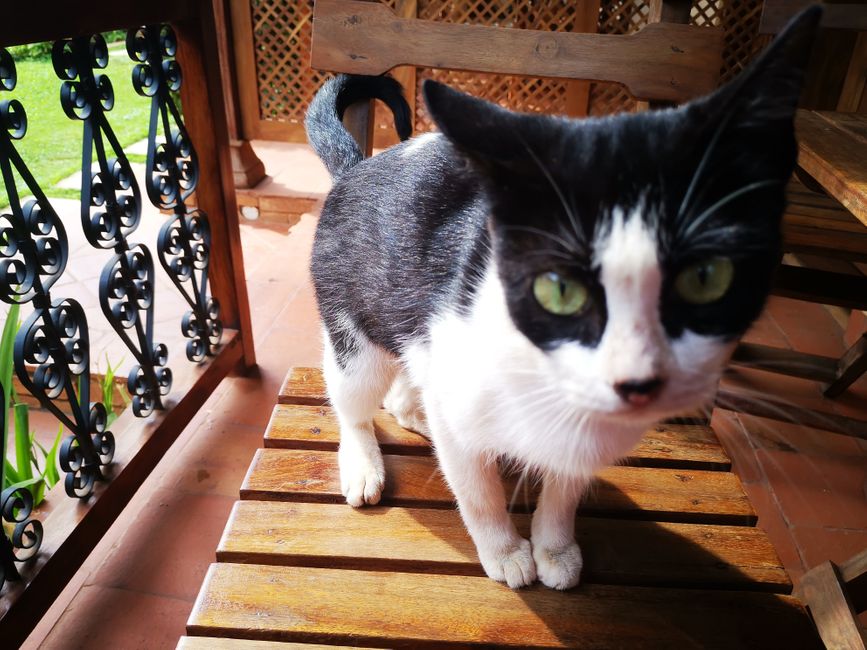
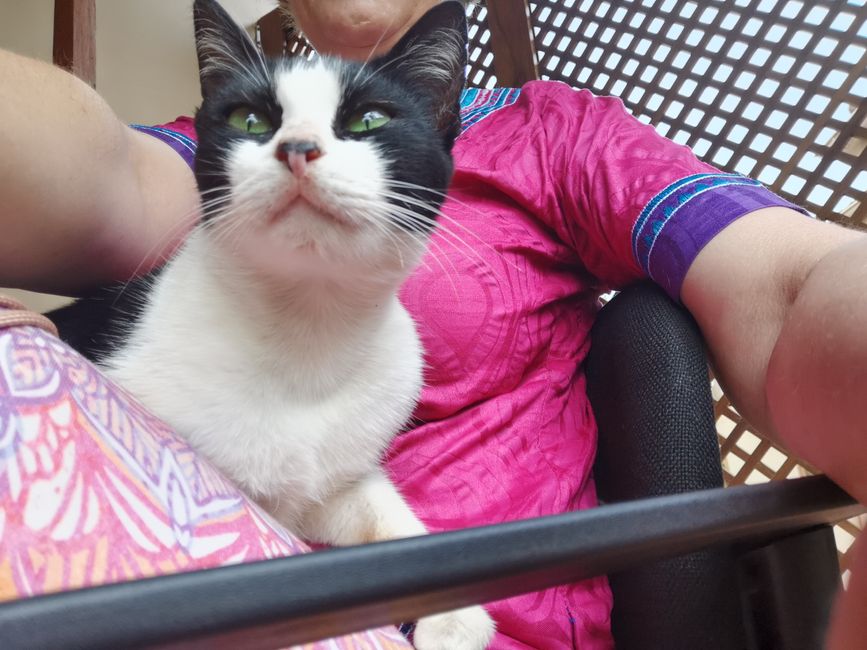
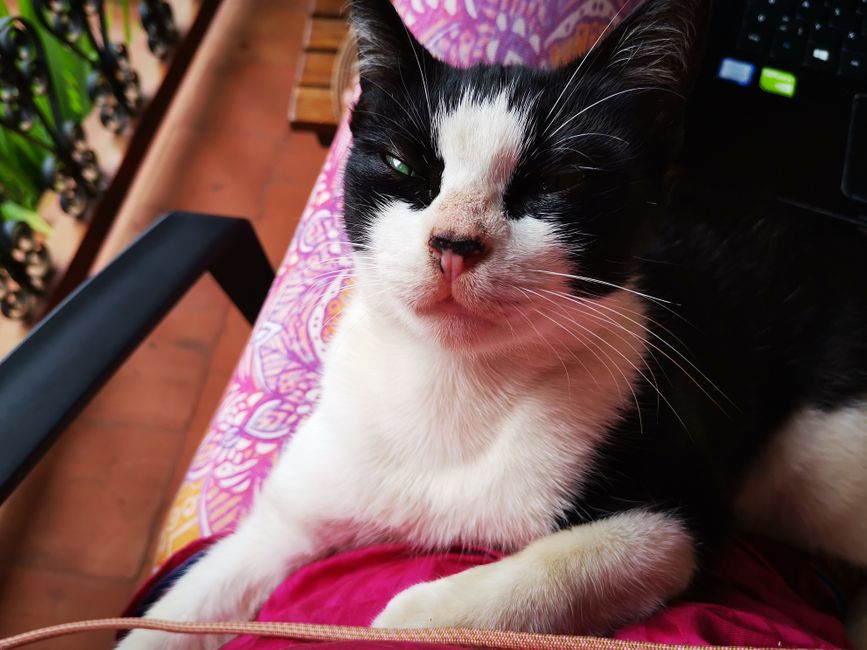
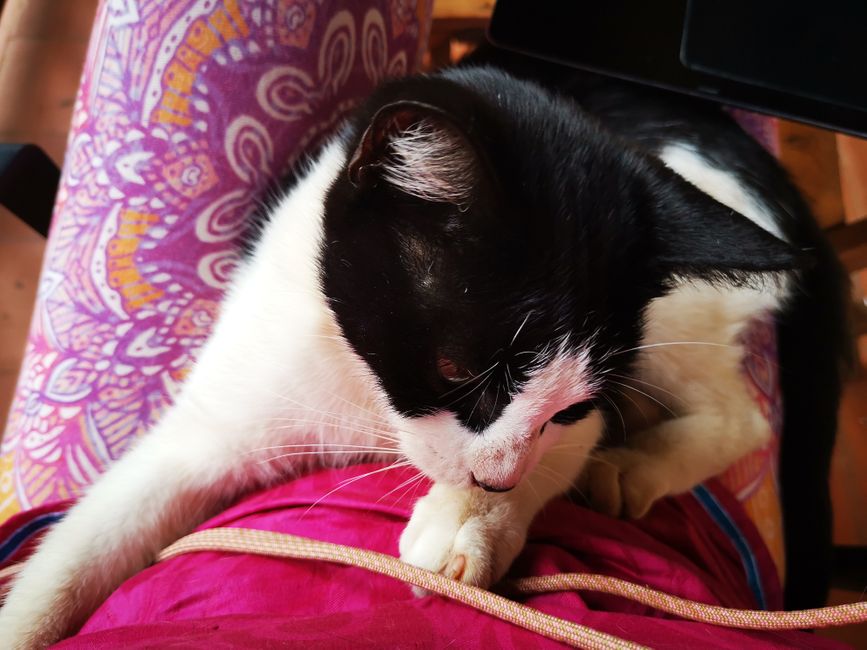
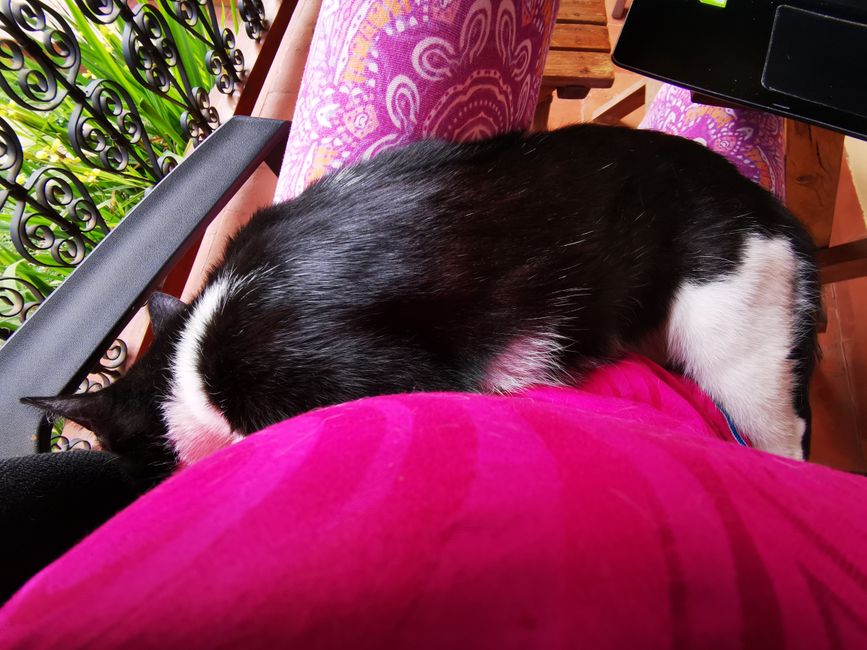
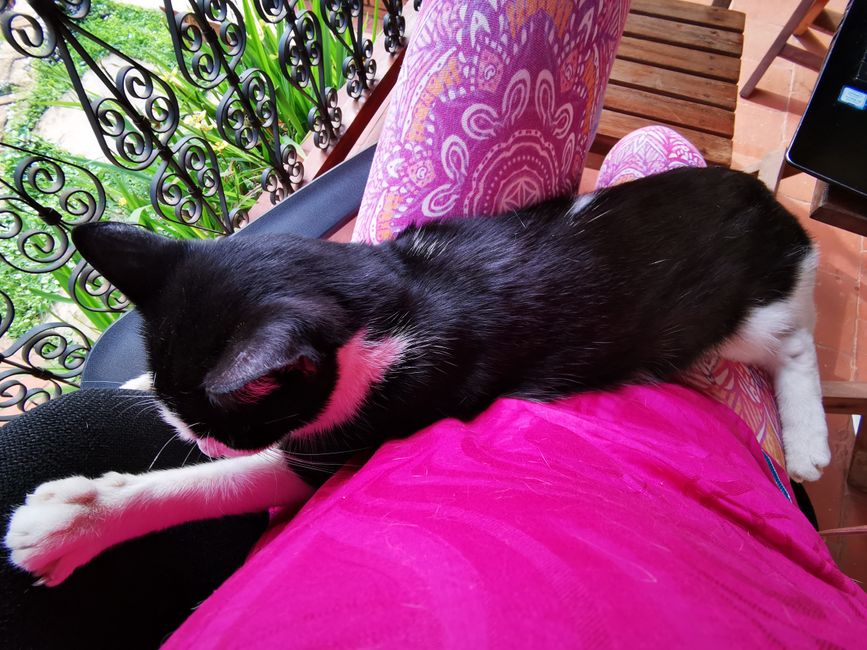
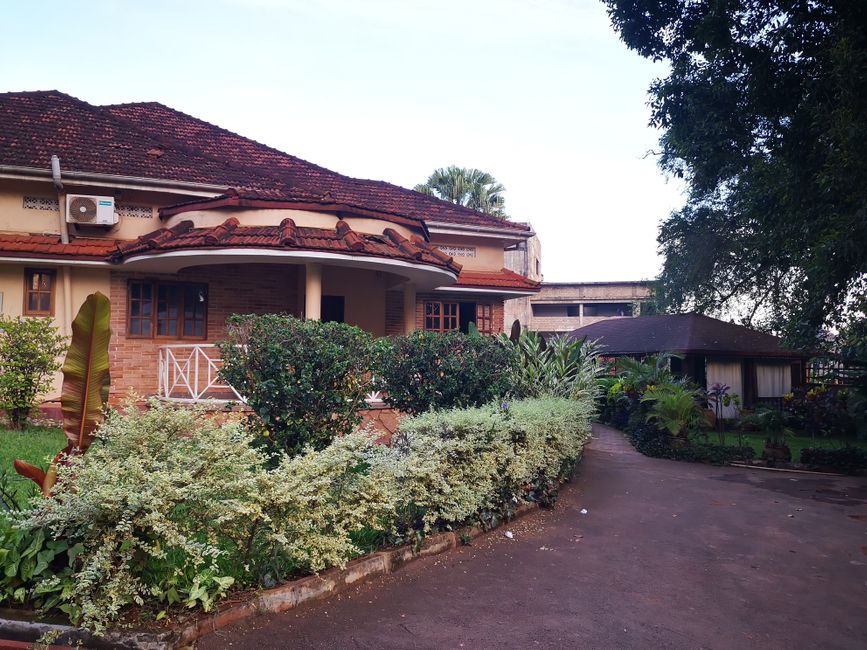
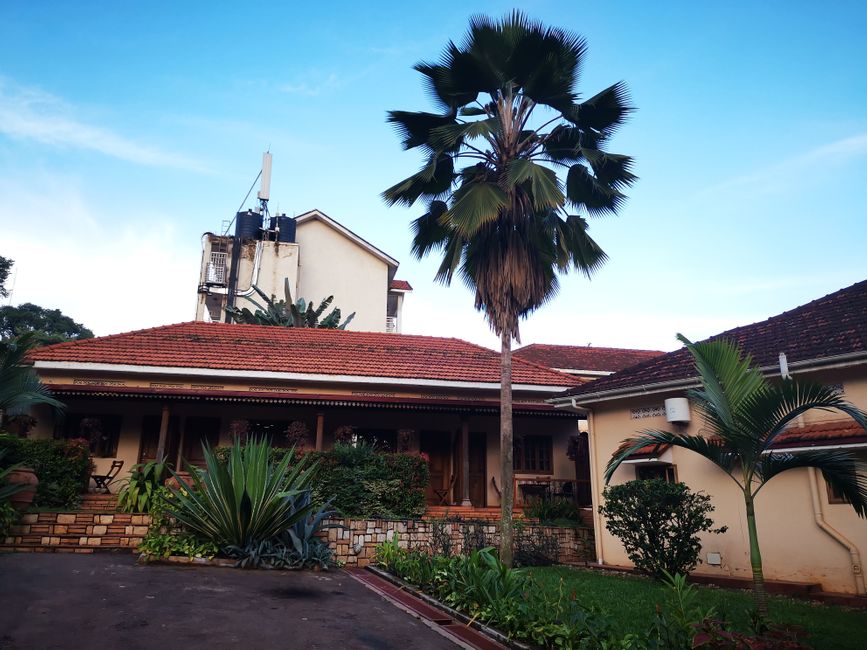
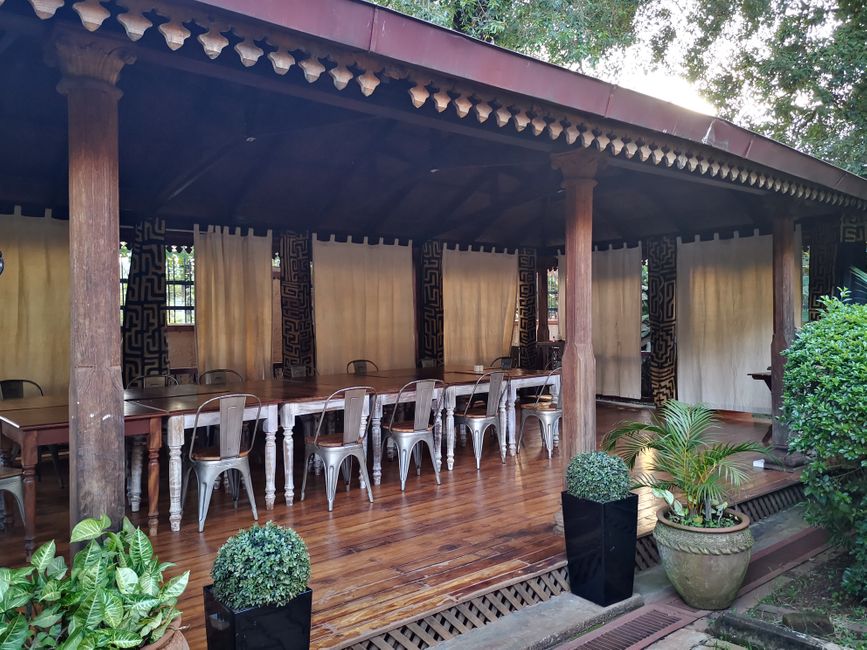
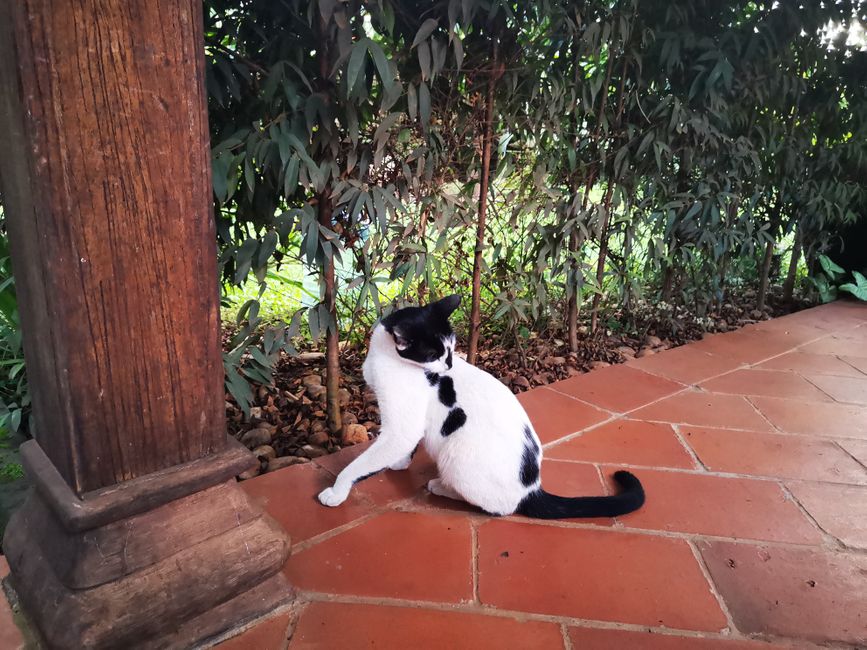
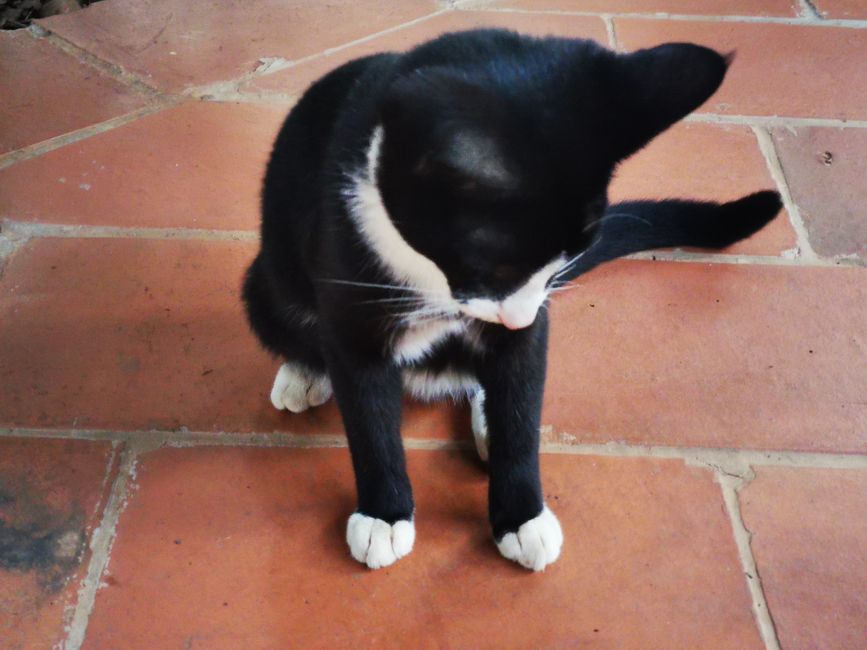
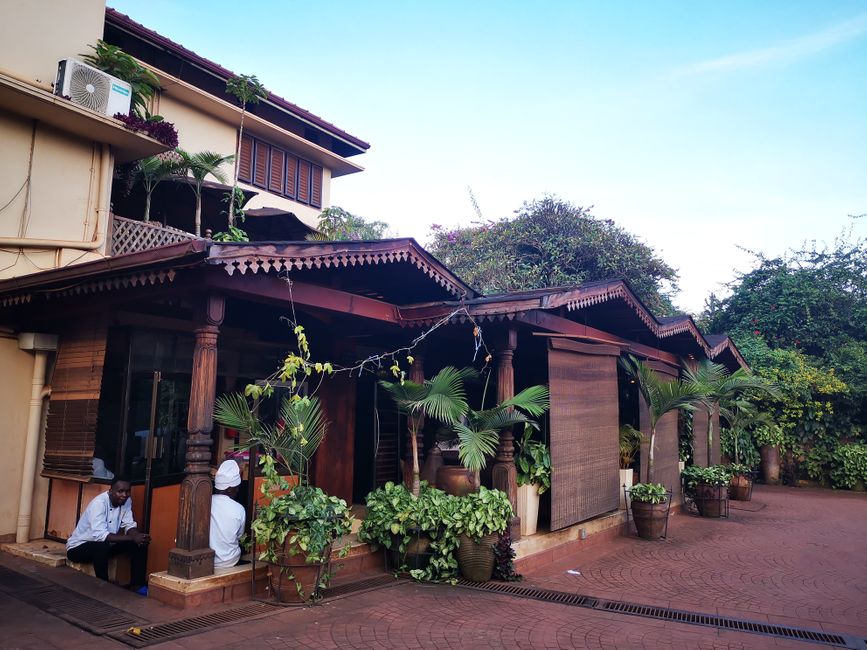
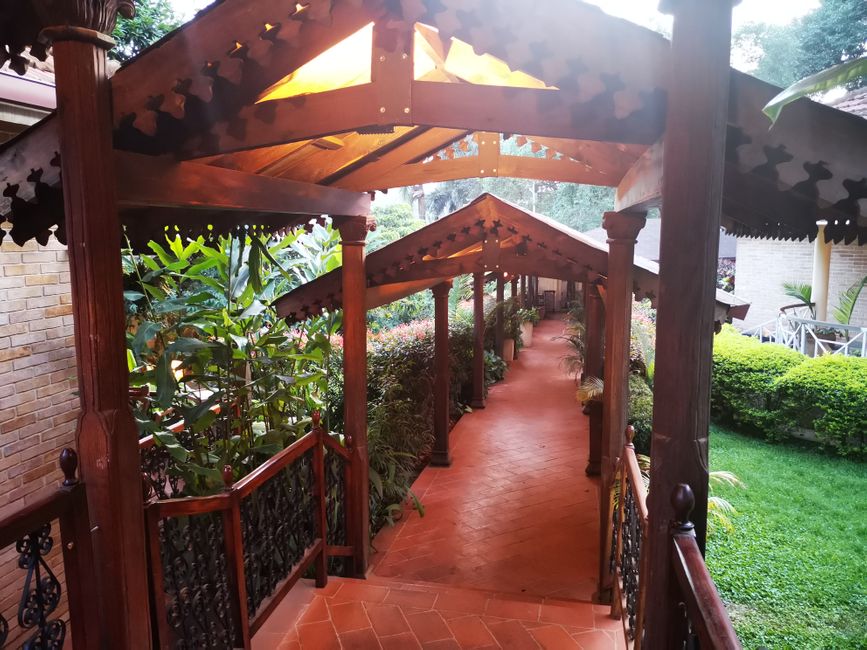
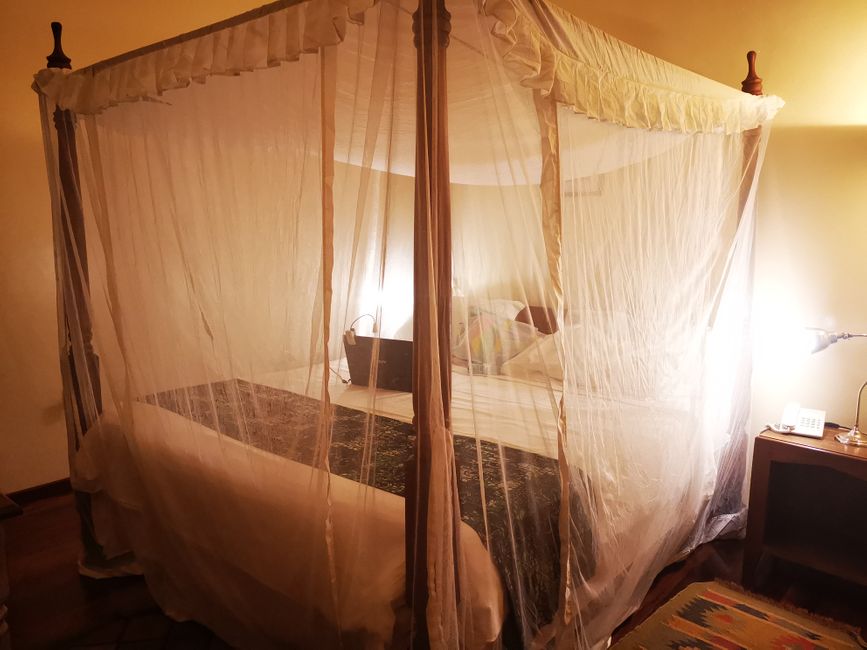
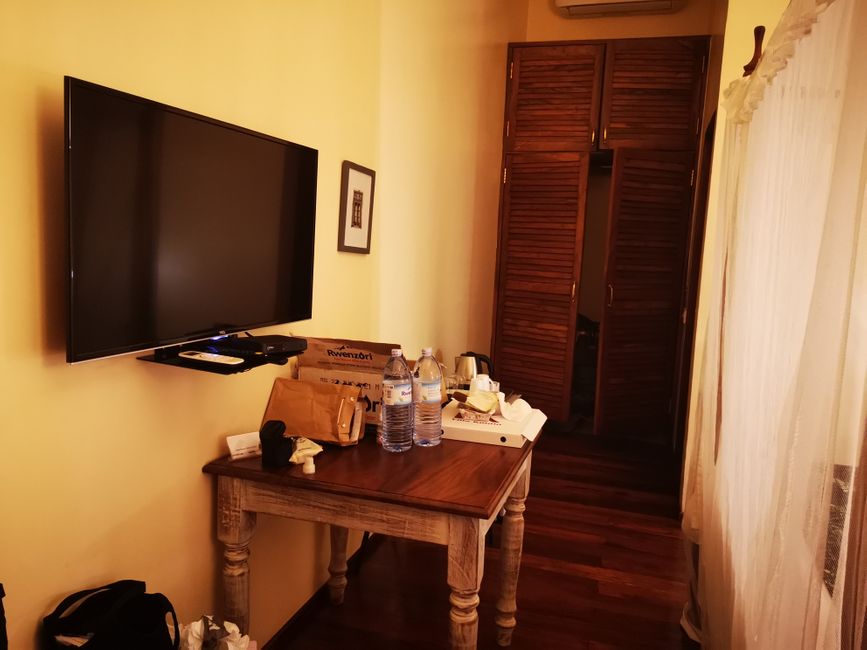
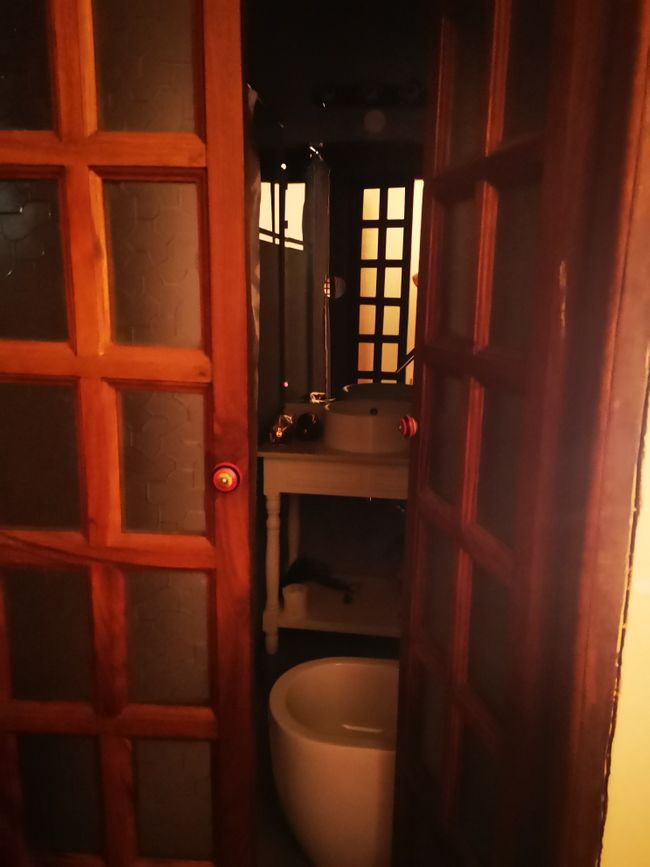
אַבאָנירן צו נעווסלעטטער
After almost four weeks in Uganda, I arrived in Kampala, the capital city, on Thursday evening. Unfortunately, next week it's time to say goodbye again. Time has flown by and every day here has been an adventure.
I came as a volunteer expert for the Senior Expert Service to support the Rwenzori Community Vision for Development, RWECO-VIDE, in starting a tourism project. I am returning with a suitcase full of colorful experiences and insights, as well as many new friends and pleasant encounters. I am grateful for this valuable experience, which has enriched me personally and was worth every investment.
Last Saturday, it was time to say goodbye to my colleagues for the time being, the management team of RWECO-VIDE. During the three weeks of our collaboration, I have experienced more appreciation than from some of my previous employers in ten years.
With Bwambale, the CEO of RWECO-VIDE, and Baluku, the owner of a tourism agency in Kasese, I then started my private journey on Sunday to see more of Uganda. For Bwambale, it was interesting to see some of the suggestions and ideas I talked about in theory being implemented in reality. He could never have afforded this trip, and it was no problem for me to take him along and also have a nice company. The last few days have been so fulfilling, but also exhausting, that I haven't had time to write. That's why I will start from the end and gradually post my travel adventures of the past few days.
Today, I decided to just relax in the hotel for a day, especially since in the afternoon I finally moved to a quieter room with a terrace. To my delight, it also has stable wifi.
As a conclusion to my journey, I treated myself to a bit of luxury and stayed at the Villa Kololo. It is a boutique hotel with a wonderful atmosphere. Guests from the West and expats come and go here. That is also because we are in one of the safer areas of the city, where most embassies are located. The rooms are all individually furnished with antique furniture, and the attached restaurants have a very delicious Mediterranean cuisine.
On the first evening, I met Abi, the restaurant manager from India, and shared his very tasty Pinsa with him. I had never heard of it before. He said it has fewer calories than a pizza. But I didn't care, because I was quite hungry after the long drive from Kibale National Park and ate half of it immediately. He probably regretted his offer afterwards and now thinks I'm extremely greedy 😉. The local cuisine was okay, primarily healthy rather than tasty, which is why I'm now happy to have some familiar flavors on my tongue.
Shortly afterwards, my adrenaline level soared: I couldn't find my smartphone. The nice receptionist Joan helped me search for it. For inexplicable reasons, the German number didn't ring when we tried to call the phone. Fortunately, I had stored Herbert's number, the representative of SES in Uganda, in my laptop. So I could reach Bwambale and he in turn contacted Baluku to check if I had left the phone in the car. That was not the case, and I already thought it had been stolen in a moment when I was distracted. You can imagine the huge relief when, after an hour of unsuccessful searching, I found it in my closet. Obviously, I absent-mindedly put it there, which shows how exhausted I was from the past few days. Getting up every day at 5:30 a.m., then being on the go all day and getting back to the hotel late, so I was looking forward to my bed after all the excitement.
Unfortunately, my first night was not very restful because apparently there is a nightclub right next to the hotel. Even my earplugs, which have served me well against the nightly calls to prayer from the muezzin, didn't help. The speakers were turned up so loud that my bed was shaking. Since the hotel was fully booked due to the inauguration ceremony of the president and some foreign hotel guests did not receive the result of their PCR test in time and therefore had to extend their stay, I had to live with it for the first two nights. Now I am happy, the room is smaller but quiet. My neighbor is a chain smoker, which is not great, but he has lent me his softer chair when he saw that I wanted to cushion my wooden chair on the terrace with one of my pillows. In the meantime, one of the ten hotel cats keeps me company and has made herself comfortable on my lap.
I haven't seen much of Kampala yet, but I can already say that it is a very vibrant city that reminds me of Indian cities in terms of its atmosphere. It is just a little quieter, because there is not as much honking and a bit less chaotic, as only pedestrians, motorcycles, and cars share the road, no cows running on the road here. Yesterday, I briefly visited the Acacia Mall to solve a problem with my Ugandan SIM card. The shops in the mall and in the surrounding area are up to European standards, only a few brand names are different.
Kampala has about the same population as Hamburg, around 1.8 million, I estimate. In the last census in 2014, there were over 1.5 million residents.
Although Uganda emits only a fraction of the carbon dioxide compared to Germany, something else is presumed on the streets of Kampala. In particular, the trucks are often shrouded in black exhaust fumes, and the motorcycles and cars are not much better. That's why my face mask finally finds a useful purpose on the Boda-Boda (motorcycle taxi). After my Boda-Boda motocross initiation in the Rwenzori Mountains, I now use the motorcycle taxis here in Kampala quite naturally. But it is still adventurous for me when the Boda-Boda races past the cars in heavy traffic in Kampala, with only a few centimeters of space, and I have to keep my legs close together so that I don't bump into anything.
Half of my suitcase was filled with masks that I previously had as accessories. Only when visiting the gorillas and chimpanzees was wearing them mandatory. This is always the case, not just during the COVID-19 pandemic, because animals can easily catch viruses from humans and are particularly susceptible to our cold viruses. In the meantime, I have given away most of the masks. I actually thought that Bwambale would pass the pink masks on to his wife. But no, he wears them himself, and Christopher and Herbert were also enthusiastic recipients. Pink goes really well with dark skin 😊.
In Kampala, the mask requirement is a little different from what I have experienced so far: the temperature is measured at the entrances of the malls, and hands must be disinfected in front of all shops. Wearing a face mask is mandatory in the stores.
Yesterday morning, I had a meeting with Herbert, who represents SES in Uganda as a volunteer, together with Bwambale. I also got to know Christopher, who is also part of the management team of RWECO-VIDE, at this opportunity. He started a new job in Kampala two months ago and can only sporadically support the activities of RWECO-VIDE for now. We had a very fruitful exchange, and I briefly presented the concept I created for the tourism project to Herbert. During the conversation, a few new exciting ideas also emerged. It is already clear to me that I will continue to support RWECO-VIDE from Germany.
After the meeting with Herbert, we visited a shop with Ugandan handicrafts to get some new ideas for the tourism project.
In the afternoon, Bwambale, Christopher, and I briefly visited the Nakasero Market, the largest fruit and vegetable market in Kampala. However, since I had already visited the Mawa Market in Kasese, which is very similar, I suggested visiting one of the crafts markets instead. The nearest and probably most famous one is the craft market on Buganda Road. It was fun to explore a few shops, and I even bought some souvenirs. Most of the items here are imported from Kenya, but that's okay. I could have bought a lot more, but my suitcase is already closing only when I sit on it. The sellers there were all eager to sell me something since I was one of the few visitors. Although I have met some tourists from the West in the past few days, it is by no means the same as before the pandemic in terms of numbers.
However, it is noticeable that many people have used the forced quiet period of the pandemic to invest, mainly in expanding existing lodges. But many new hotels are also emerging. Apparently, many here expect a travel boom as soon as the travel restrictions, which many countries still have, are lifted.
So, I just got myself Pinsa and apple strudel with vanilla ice cream from the restaurant and ate it comfortably in my room. While waiting for my food, I found out that the hotel not only has a nightclub as its neighbor but is surrounded by three nightclubs. I am curious about tonight…
On the way to the restaurant, I met some more of my cat friends. The bartender takes care of their well-being, as does the wife of the hotel owner, who is obviously a cat lover. When I mentioned that I had hardly seen any stray dogs and cats so far, I was told that the street dogs in Kampala are regularly poisoned with treated meat to prevent them from breeding too much. This is, however, a very cruel death, although I was assured that a particularly strong poison is used.
And now back to my experiences: After Bwambale and Christopher patiently accompanied me while shopping, I invited them to have dinner afterwards. However, I only kept them company with a mango juice and ate later in the hotel.
In the course of our conversation, we also talked about working abroad. On this occasion, I explained my point of view to them: Even though much more money can be earned in the West than is usually the case in a country like Uganda, much more money is also needed, even if one lives very frugally. Of course, in that case, one can support their family financially, so that they have a better standard of living. But what kind of life is that to trade for it? Far away from your own family, whom you may only see once a year when you come home for vacation. I have seen how important extended family is here. People live together in clans and support each other. Even if they have little, I could feel the connection they have to each other.
Probably that is why there are so many "community-based" projects in Uganda. I have never seen this so strongly in any developing country before, as I have here. One social project follows the other, and everywhere I was asked to donate. It can be a bit exhausting at times, but it is definitely better than being begged constantly. Unlike begging, the donations benefit a whole community.
All of this would be lost alone in a foreign country. Our life in the West is so completely different, and the culture shock would be great, probably much greater than it is for us. In addition, there are still some people in the West who feel superior to foreigners, especially if they have a darker skin color, and they make them feel it. If you regularly feel disrespected, it is unhealthy in the long run.
I told them that I consider Uganda to be a country where something can be achieved, even if it takes a long time. Moreover, who will further develop the country if the educated elite moves abroad?
On the other hand, I can already imagine immigrating to Uganda. I have met a few Europeans who have built something here. In Uganda, it is possible for foreigners to acquire their own land, which makes the whole thing quite attractive. In addition, compared to Germany, land prices are very affordable. It is definitely worth considering, especially if I don't find a new job in Germany. We'll see…
אַבאָנירן צו נעווסלעטטער
ענטפער
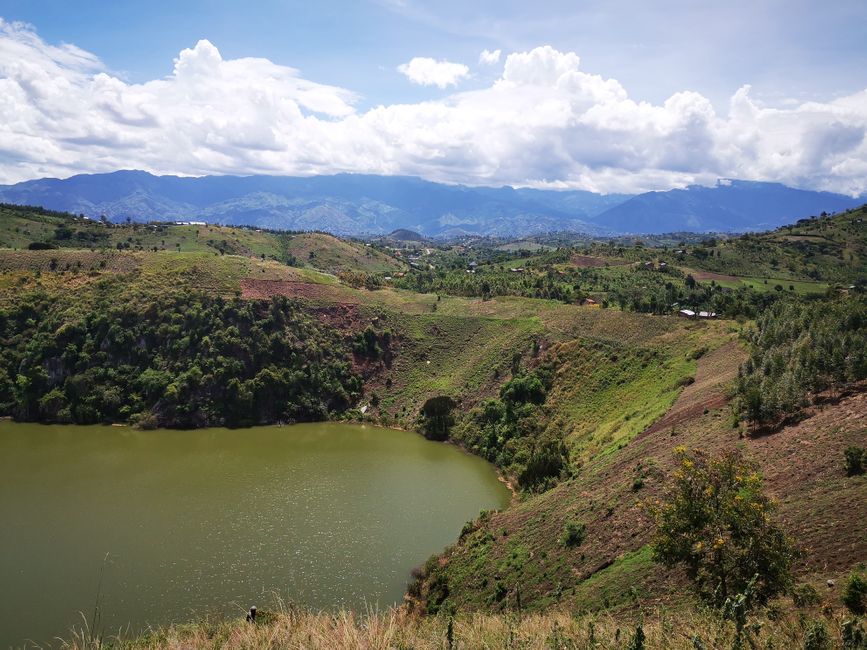
רייזע ריפּאָרץ אוגאנדע

